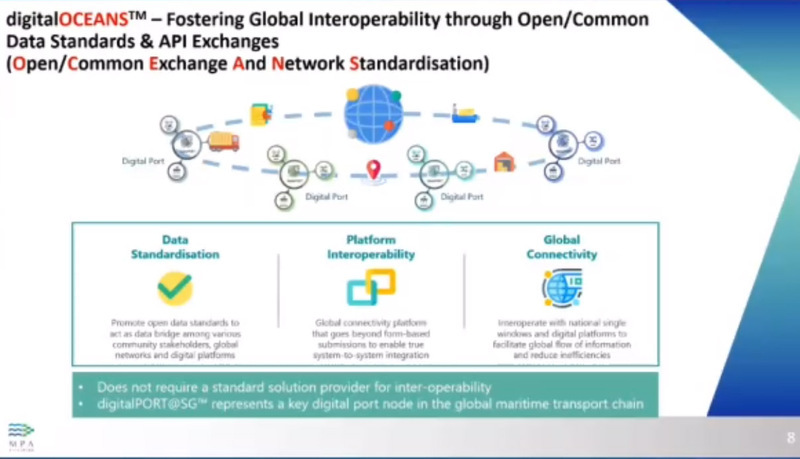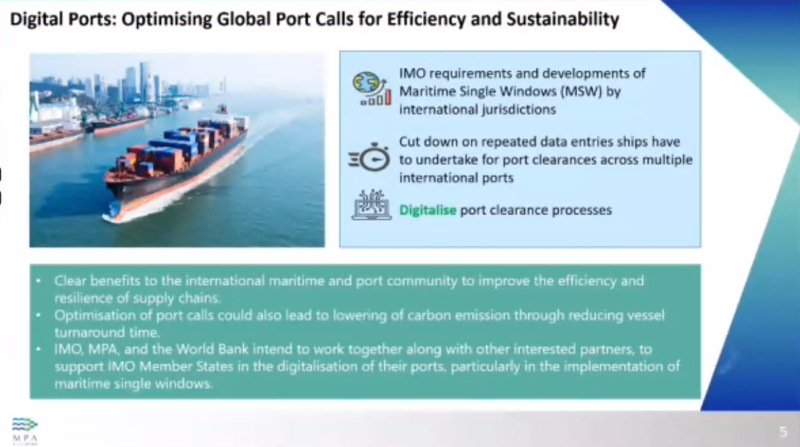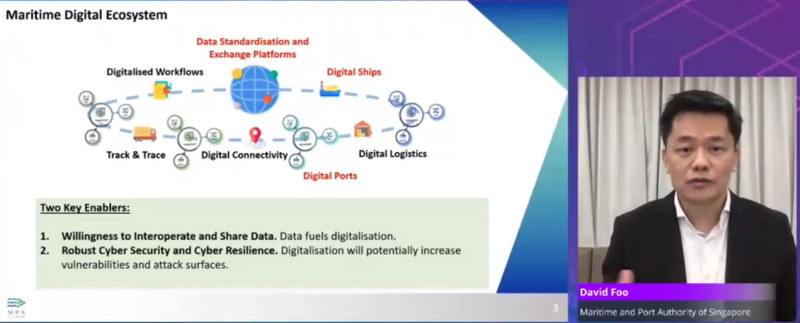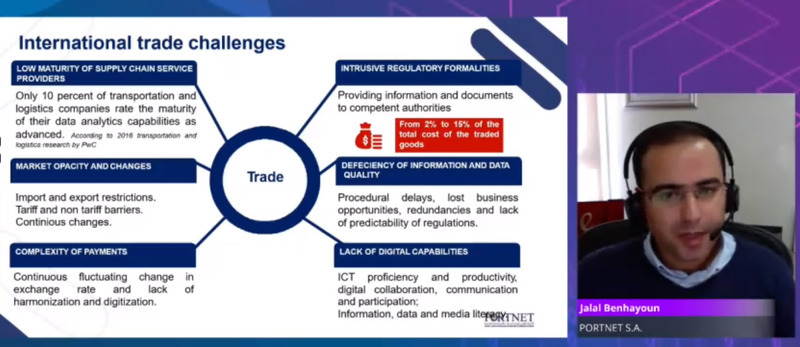Kitak Lim: “Digitalisation is key in enabling the post-COVID recovery, strengthening the resilience of the global supply chain and taking shipping into a new era."
 The “Future of Shipping - Digitalisation” webinar was successfully held October 8, 2020 in Singapore. The maritime industry event was jointly organised by the International Maritime Organization (IMO) and Maritime and Port Authority of Singapore (MPA). The main massage of the webinar was that the international standards and collaboration are needed to unlock digitalisation’s full potential to drive efficient and green shipping. The webinar gathered 400 participants from around the world. The event also was attended by the IAA PortNews journalists.
The “Future of Shipping - Digitalisation” webinar was successfully held October 8, 2020 in Singapore. The maritime industry event was jointly organised by the International Maritime Organization (IMO) and Maritime and Port Authority of Singapore (MPA). The main massage of the webinar was that the international standards and collaboration are needed to unlock digitalisation’s full potential to drive efficient and green shipping. The webinar gathered 400 participants from around the world. The event also was attended by the IAA PortNews journalists.
“Digitalisation across global supply chains is a mammoth task, and IMO has a vital role to play in this transformation,” said Mr Chee Hong Tat, Singapore’s Senior Minister of State of the Ministry of Transport and Ministry of Foreign Affairs in his opening remarks. Mr Chee added, “Digitalisation is a national imperative for Singapore. Together with our industry, Singapore will continue to collaborate with IMO and Member States in their digitalisation efforts.”
“The pandemic has shown that shipping remains the leading facilitator of global trade,” said Mr Kitack Lim, IMO’s Secretary-General. “Digitalisation is key in enabling the post-COVID recovery, strengthening the resilience of the global supply chain and taking shipping into a new era. IMO is working to ensure shipping can embrace the digital revolution – while ensuring safety, environmental protection as well as cyber security. Cooperation between all relevant stakeholders, from shipping, ports and logistics, will be vital to drive the digitalisation of shipping, enhance its efficiency and the sustainability, and therefore facilitating trade and fostering economic prosperity.”
Participants at the webinar also witnessed the launch of the Port Authorities Chief Information Officer (CIO) Cybersecurity Network (PACC-Net). With the support of nine ports, this network will enhance cybersecurity awareness within the maritime sector and facilitate early sharing of cyber information to counter potential and active maritime cybersecurity threats. The participating partners are Abu Dhabi Ports, Port of Antwerp, Port Klang Authority, Port of Kobe, Port of Long Beach, Port of Montreal, Port of Rotterdam, Port of Seattle and MPA. The proposal for PACC-Net was first tabled by MPA at the 5th edition of the Port Authorities Roundtable in Kobe, Japan, in October 2019.
The webinar speakers Dr Heike Deggim, Director of Maritime Safety, International Maritime Organization and Captain Tomoyuki Koyama, Senior Managing Executive Officer, NYK Line emphasised the important role of digitalisation in keeping seaborne trade flowing smoothly and safely during the pandemic, and supporting just-in-time operations to reduce shipping emissions. Mr Eric Chean, CEO & Co-founder, Ship Supplies Direct, Mr Ninan Oommen Biju, Senior Port & Maritime Transport Specialist, Transport Global Practice, World Bank and Mr Jalal Benhayoun, Managing Director, PORTNET S.A. also highlighted how the international maritime community should move forward together to seize opportunities and address the challenges presented by digitalisation. This includes establishing common standards to ensure that transactions are both standardised and secure across all parties, as well as information sharing, facilitated by close cooperation between industry and government stakeholders.
The participants paid attention to the development of the autonomous vessels (MASS) vessel segment and to unmanned navigation, emphasising that for the successful implementation of these projects in the future, it is necessary to develop digitalization, big data technology and to create a coastal infrastructure.
Mr David Foo, MPA’s Senior Director, Operations-Technology, presented how maritime digitalisation offers clear benefits to the international maritime and port community to improve the efficiency and resilience of supply chains.
"IMO, MPA and the World Bank recognise that one key step to realise these benefits is the digitalisation of workflows and increased data exchange between ships, ports and value chain stakeholders. This will facilitate global trade, increase supply chain resilience, and improve ship operations. IMO, MPA, and the World Bank intend to work together along with other interested partners, to support IMO Member States in the digitalisation of their ports, particularly in the implementation of maritime single windows," the MPA press release said.
The International Maritime Organization (IMO) is the United Nations specialized agency with responsibility for the safety and security of shipping and the prevention of marine and atmospheric pollution by ships. IMO's work supports the UN SDGs.
The Maritime and Port Authority of Singapore (MPA) was established on 2 February 1996, with the mission to develop Singapore as a premier global hub port and international maritime centre (IMC), and to advance and safeguard Singapore's strategic maritime interests. MPA is the driving force behind Singapore's port and maritime development, taking on the roles of Port Authority, Port Regulator, Port Planner, IMC Champion, and National Maritime Representative. MPA partners the industry and other agencies to enhance safety, security and environmental protection in our port waters, facilitate port operations and growth, expand the cluster of maritime ancillary services, and promote maritime R&D and manpower development.








